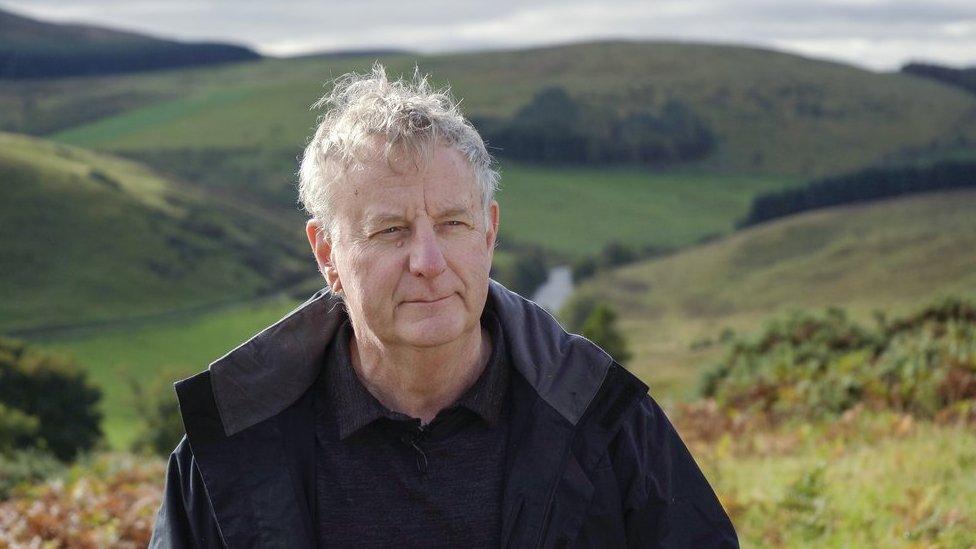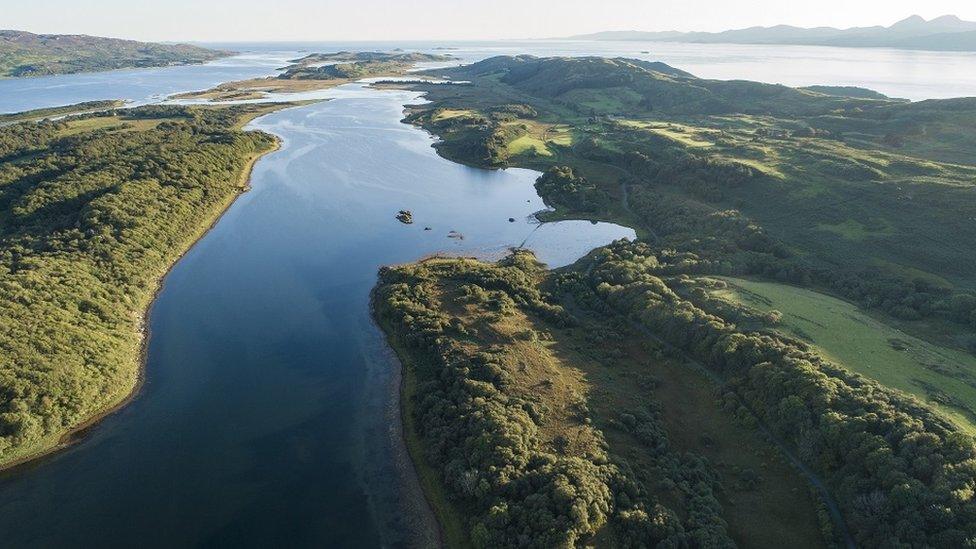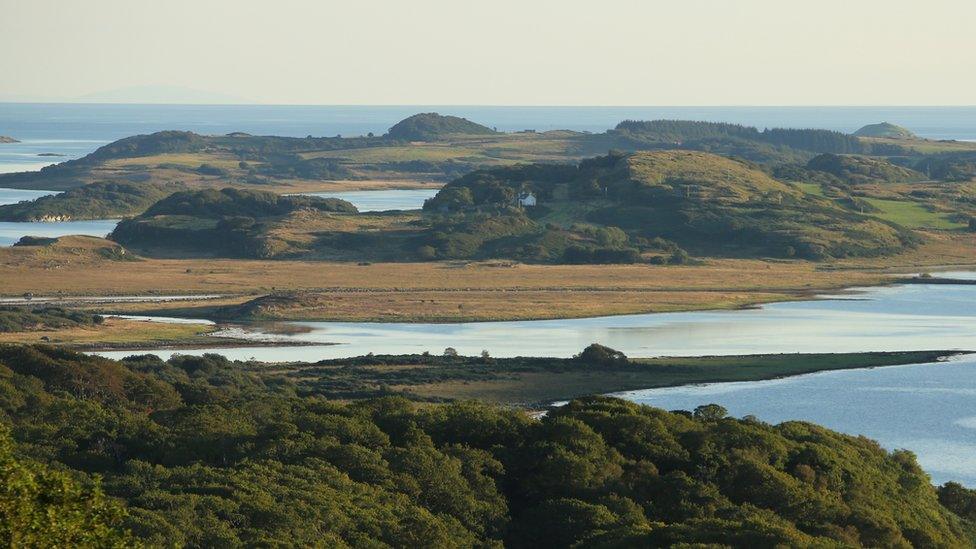I'm not a 'green laird' says bidder for £10m Argyll estate
- Published

Dr Jeremy Leggett's business Highlands Rewilding is raising £10m to purchase Tayvallich estate
The man behind plans to buy and rewild a 3,500-acre estate in Argyll has insisted he is not a "green laird".
Dr Jeremy Leggett's company, Highlands Rewilding, is the preferred bidder for the Tayvallich estate.
He needs to raise millions of pounds from private investors to be able to make the purchase.
But there has been controversy about wealthy individuals and companies who have been dubbed green lairds for buying up large pieces of land where they can make money by planting trees to offset carbon emissions elsewhere.
Dr Leggett says he is different and has community prosperity at the heart of his plans.
The Tayvallich estate occupies one of the most majestic and unspoilt landscapes in Scotland, according to the selling agents Strutt and Parker.
For sale at offers over £10.4m the estate includes several small islands and a number of Sites of Special Scientific Interest.

A community group was also interested in taking over the estate
The preferred bidder Highlands Rewilding has been given until the end of February to raise the money needed for the purchase, some of which is coming from crowdfunding.
The company already owns two Scottish estates, Bunloit in Inverness-shire and Beldorney in Aberdeenshire, where work is being carried out to restore the natural environment.
Founder Dr Jeremy Leggett says adding the Tayvallich estate to that portfolio is a fantastic opportunity to scale up efforts to tackle climate meltdown and biodiversity collapse.
This would involve expanding some of the rare Atlantic temperate rainforest found on the west coast of Scotland.
He says his plans are very different from the so-called green laird model.
"We're a mass ownership company and we're hoping that lots of Scots in general and local community people in particular will actually become co-owners of all this land that we're operating for the greater good, as we see it," says Dr Leggett.
"This is not as good as the community buy-out model of the kind that is running in the southern uplands at Langholm, but it's a halfway house.
"And as many of the good folk in Tayvallich have said to me, it's a terrific second best given that they couldn't afford to buy the estate themselves."

Tayvallich estate was on the market for more than £10m
Last week Dr Leggett held a public meeting in Tayvallich to outline his plans, and says he got a good response.
But Ailsa Raeburn, who is the chairperson of both Community Land Scotland and the Isle of Eigg Heritage Trust, does not think ownership by Highlands Rewilding is the best way forward for local people.
She says: "There was an inspiring group of local volunteers who were keen to see land within the Tayvallich estate area come into community ownership.
"There are a lot of second homes and holiday homes in the Tayvallich area and they wanted to develop affordable housing for local people."
She adds: "They were also really keen to do work around ecological and biodiversity restoration and look at renewables, and work with local farmers to ensure that local jobs in agriculture were retained."
'Money will leak out'
Ms Raeburn says Dr Leggett has some great ideas but describes it as an ecological restoration-led proposal. She says that might not always balance with other pressures facing the community - like housing, jobs and retaining young people.
She says: "When you peel away the layers, control over what happens on the estate and who benefits from it will lie outwith the community.
"Most of the money to buy the estate will be coming from private financiers, investors, speculators who are looking for a return - and in that respect Highlands Rewilding is no different from any other private owner.
"Money will leak out of the local economy and go somewhere else. This does fit with the green laird model."
Dr Jeremy Leggett says he can understand why some people have concerns.
'No other way'
He says: "There will be people who won't trust us, who think that I'm a wolf in sheep's clothing. We'll just try and persuade them over time that this is something different."
Dr Leggett adds that his company is discussing with the community what will happen if Highlands Rewilding raises its funds in time, such as selling off small plots for low-carbon affordable housing.
He says tackling problems facing biodiversity and the climate required billions of pounds of private investment.
"There's no other way to do that. It has to come from the private sector, and this model, the Highlands Rewilding model, is designed to try and keep as many people as possible happy in local communities, and also to appeal to the kind of people who can bring that money to the table," he says.
It remains to be seen whether Highlands Rewilding will be able to raise the money needed to buy the estate in time.
"It'll go to the wire. It will be a nail-biter," says Dr Leggett.
Related topics
- Published10 December 2021
